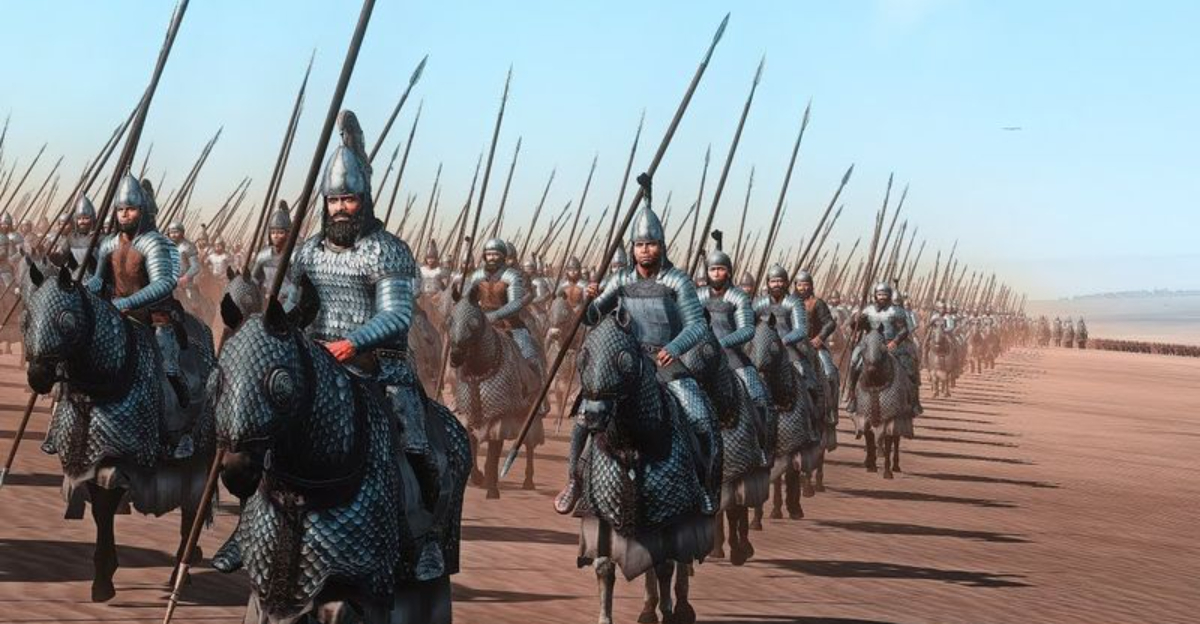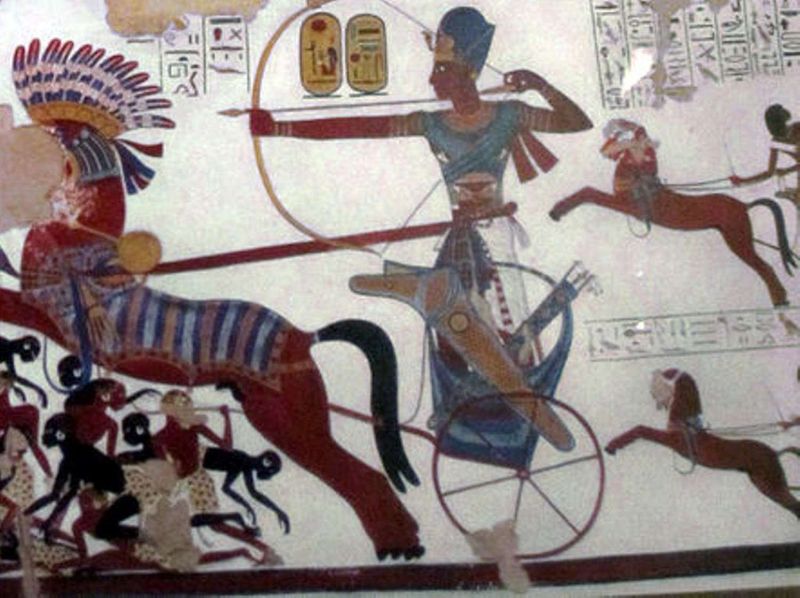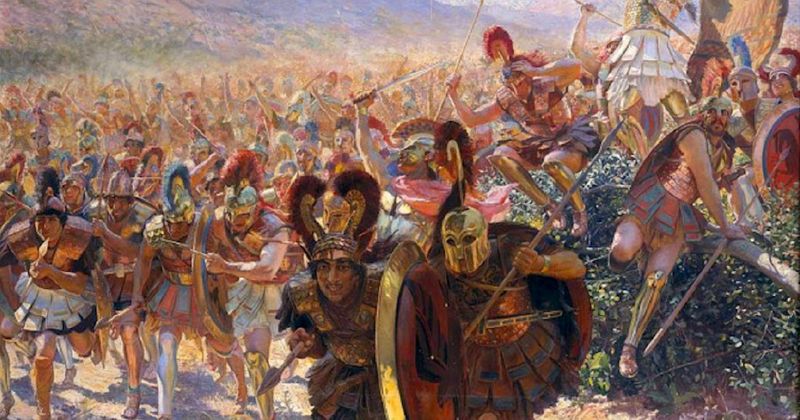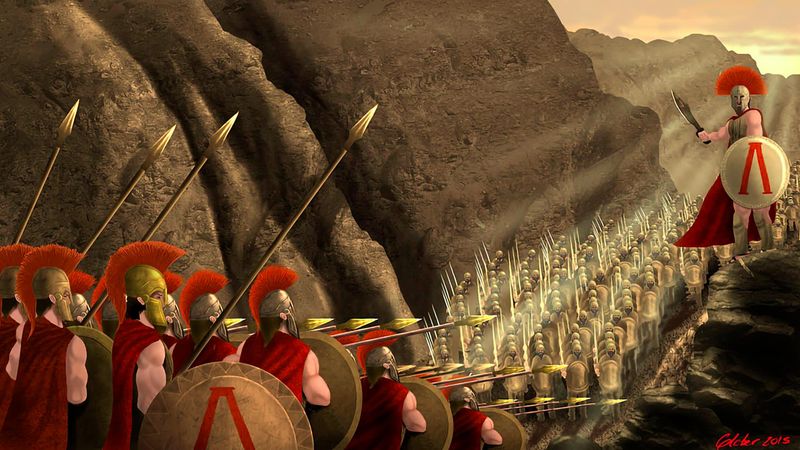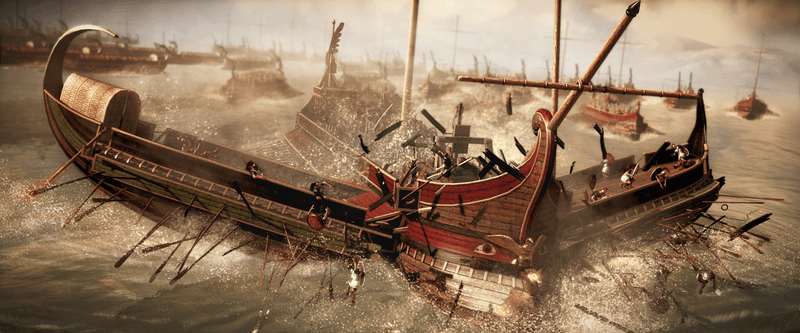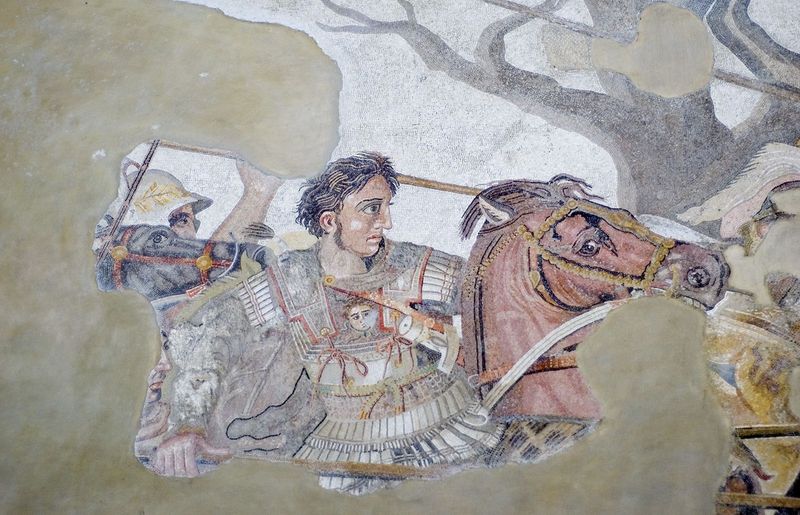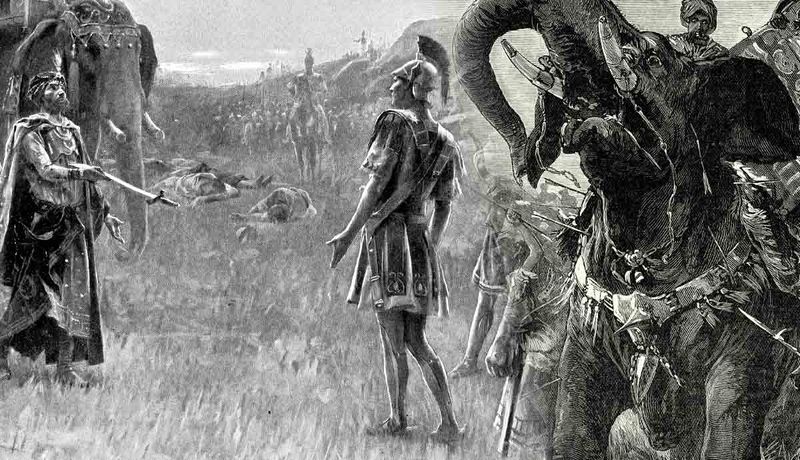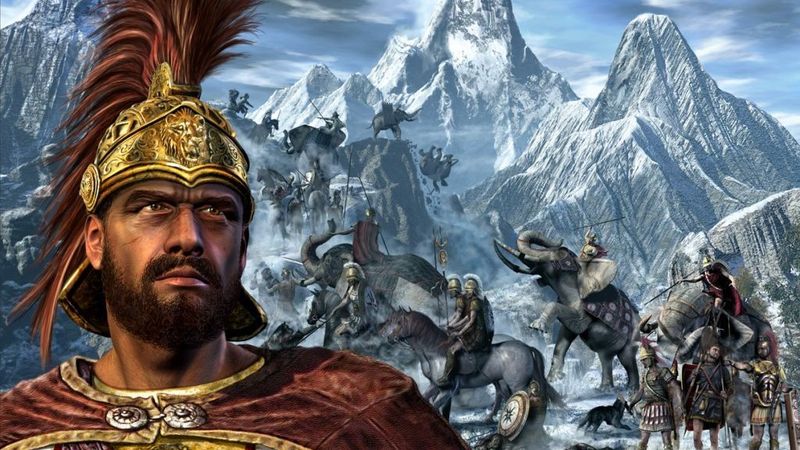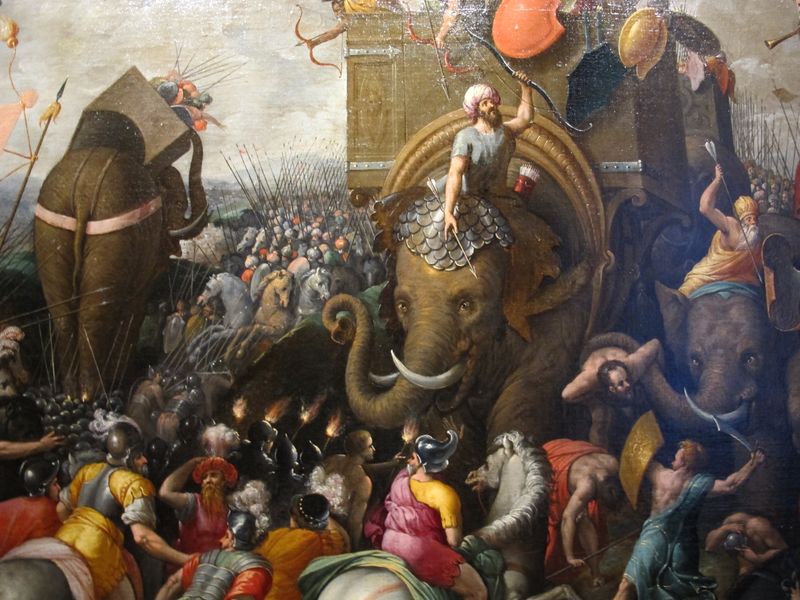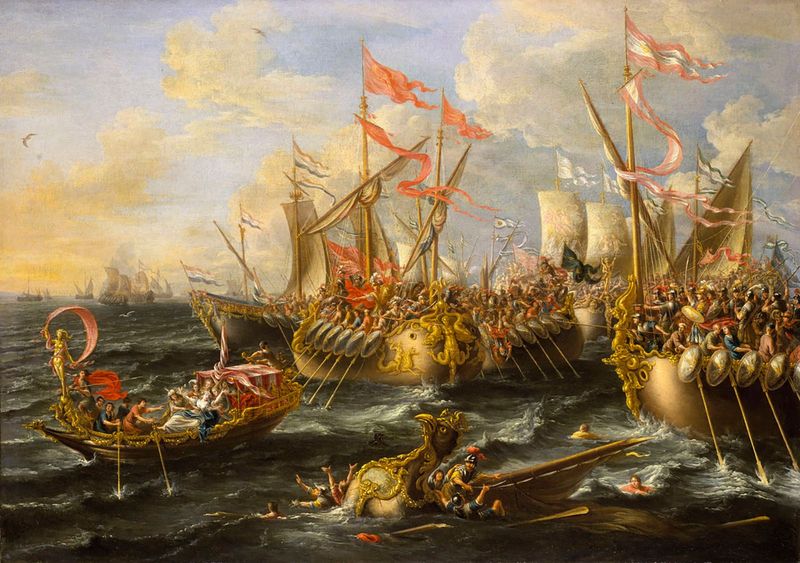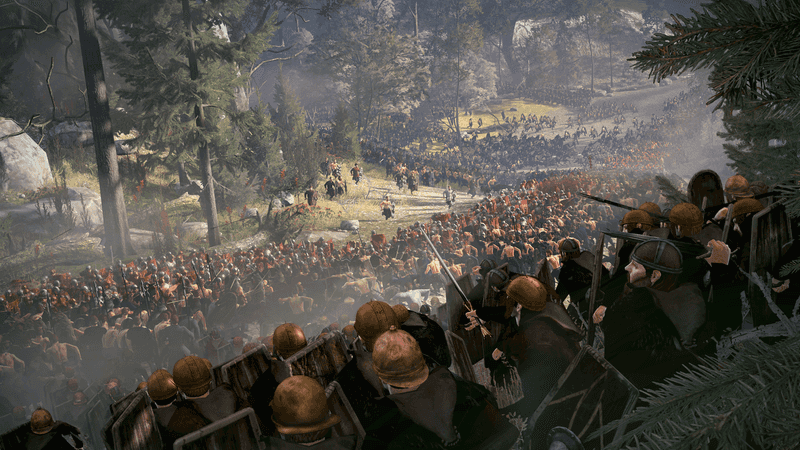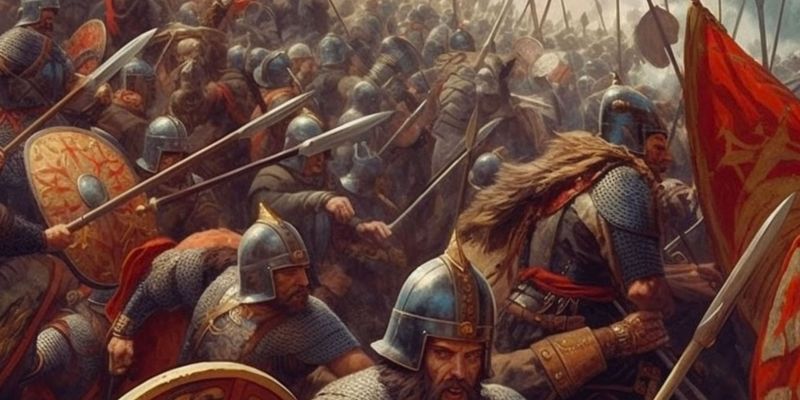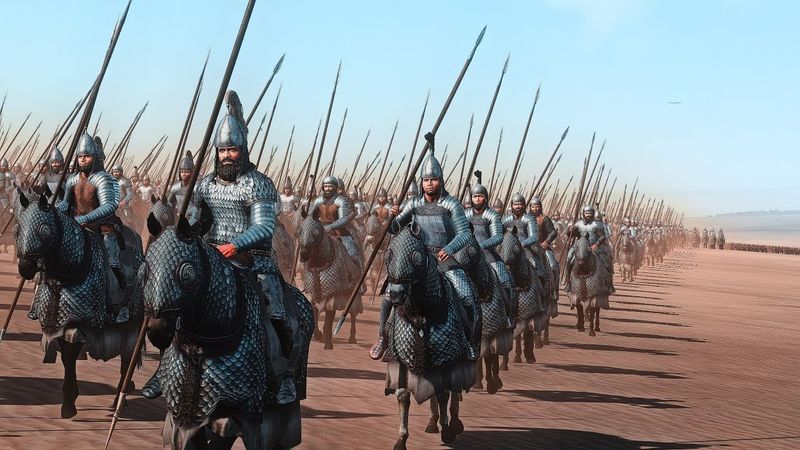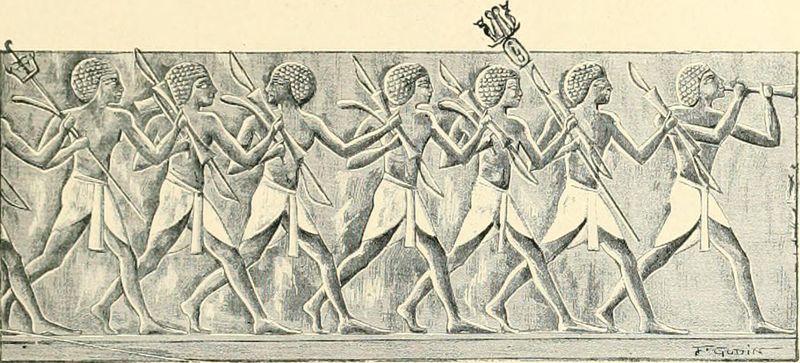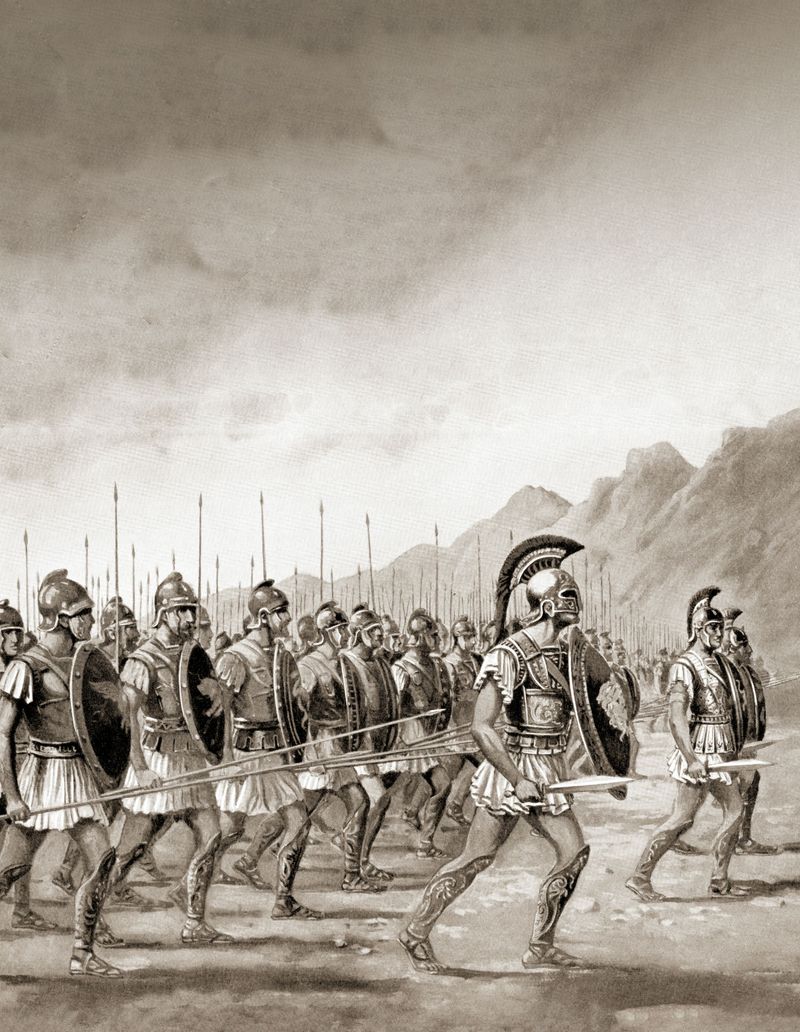War has shaped the fate of empires, cultures, and entire continents. Long before tanks and drones, ancient battles—fought with spears, swords, and sheer will—decided who would rule and who would vanish into history. These 14 legendary clashes didn’t just determine victors on the battlefield—they redrew borders, crushed dynasties, and shifted the course of civilization forever.
1. Battle of Kadesh (1274 BCE)
The Battle of Kadesh, a monumental clash between Pharaoh Ramses II and the Hittite King Muwatalli II, took place in 1274 BCE. Imagine chariots thundering across the plains of modern-day Syria, as two of the era’s superpowers collided in warfare. While both sides claimed victory, the battle’s true legacy was diplomatic. It resulted in the first known peace treaty in recorded history, forever altering the landscape of international diplomacy. A testament to human ingenuity, this treaty paved the way for conflict resolution methods used for centuries.
2. Battle of Marathon (490 BCE)
Outnumbered and outgunned, the Athenians faced the Persian army at Marathon in 490 BCE. It was a battlefield where determination and strategy triumphed over sheer numbers. The Athenian’s unexpected victory saved Greece and Western civilization from Persian domination. This legendary encounter inspired the modern-day marathon, commemorating the run of a soldier who dashed 26 miles to Athens to deliver news of the triumph. With this battle, Greece proved its resilience and altered the fate of the Western world.
3. Battle of Thermopylae (480 BCE)
In the narrow pass of Thermopylae, 300 Spartans stood as symbols of courage, facing a Persian force of over 100,000. This epic last stand in 480 BCE, alongside 7,000 Greek allies, became legendary for its sheer bravado. Though ultimately a tactical win for Persia, the Spartans’ sacrifice fueled a united Greek resistance. The battle’s spirit lingered long after, echoing through history as an emblem of bravery against overwhelming odds and igniting a flame of freedom and unity among the Greeks.
4. Battle of Salamis (480 BCE)
The waters of Salamis bore witness to a turning point in the Greco-Persian Wars in 480 BCE. Greek naval forces, led by cunning strategy, lured the massive Persian navy into a trap within the narrow strait. The ensuing clash saw the Greek fleet decimate their adversaries. This victory was more than maritime; it was a cultural preservation. By safeguarding Greek independence, Salamis laid the groundwork for Western democracy and philosophy to flourish for generations.
5. Battle of Gaugamela (331 BCE)
At Gaugamela in 331 BCE, Alexander the Great faced the vast forces of Darius III, Persian Emperor. Outnumbered yet undeterred, Alexander’s tactical genius shone as he led his army to a decisive victory. This battle didn’t just end the Achaemenid Empire; it marked the dawn of an era where Alexander became the ruler of the largest empire the world had ever known. Gaugamela’s legacy is one of brilliance and ambition, reshaping the ancient world’s political landscape.
6. Battle of the Hydaspes (326 BCE)
In 326 BCE, Alexander the Great confronted King Porus on the banks of the Hydaspes River. It was not merely a clash of armies but a meeting of two great leaders. Porus’s war elephants unleashed chaos, yet Alexander, with unmatched resolve, emerged victorious. The battle’s outcome was not just conquest; it was respect. Impressed by Porus’s valor, Alexander allowed him to retain his kingdom, showcasing the unique blend of might and magnanimity in ancient warfare.
7. Battle of Cannae (216 BCE)
The Battle of Cannae in 216 BCE remains a masterpiece of military strategy. Hannibal of Carthage executed one of history’s most brilliant tactical maneuvers, encircling a significantly larger Roman army. Amidst the chaos and bloodshed, Hannibal’s genius shone through. Though Rome would eventually recover, Cannae left a deep psychological scar on the Roman psyche. This battle taught future generations about strategy, courage, and the thin line between victory and defeat.
8. Battle of Zama (202 BCE)
In the sun-baked plains of Zama, 202 BCE witnessed the climactic end to the Second Punic War. Roman General Scipio Africanus faced Hannibal in a battle that would determine the future of the Mediterranean. The Romans, using innovative tactics, defeated the Carthaginians on their home soil. This victory wasn’t just territorial; it marked the ascendancy of Rome as a dominant power for centuries. Zama’s resonance was felt far beyond the battlefield, echoing through the annals of history.
9. Battle of Actium (31 BCE)
The Battle of Actium in 31 BCE unfolded on the serene waters of the Ionian Sea, yet its consequences were anything but calm. Octavian’s fleet clashed with that of Mark Antony and Cleopatra, sealing the fate of the Roman Republic. This naval encounter paved the way for Octavian to become Augustus, the first Roman Emperor. The transition from republic to empire reshaped governance and power dynamics, marking the dawn of imperial Rome and the end of an era of democracy.
10. Battle of the Teutoburg Forest (9 CE)
Amidst the dense canopy of the Teutoburg Forest in 9 CE, Roman legions met a devastating fate. Germanic tribes ambushed and obliterated three entire Roman legions, a defeat that halted Roman expansion into Germania. The psychological impact of this ambush was as profound as its military consequences, redefining the empire’s northern boundaries for centuries. Teutoburg became a symbol of resistance against imperial might, and its echoes reverberated through the Roman world.
11. Battle of Adrianople (378 CE)
In 378 CE, the Battle of Adrianople saw the Goths clash with Roman forces led by Emperor Valens. This encounter was pivotal, as the Goths achieved a crushing victory, demonstrating Rome’s vulnerability. The Gothic triumph marked a significant shift, often viewed as the beginning of the Western Roman Empire’s decline. Adrianople’s legacy was profound, challenging the invincibility myth of Rome and altering the course of European history in the centuries to follow.
12. Battle of Carrhae (53 BCE)
The sun-baked plains of Carrhae in 53 BCE bore witness to a Roman defeat of epic proportions. Crassus led a massive Roman force, only to be decimated by Parthian horse archers. This encounter showcased the deadly effectiveness of cavalry and shifted power dynamics eastward. Rome’s dreams of expansion were checked, and the battle’s outcome resonated as a lesson in humility and strategic foresight, highlighting the importance of understanding one’s enemy.
13. Battle of Megiddo (15th century BCE)
Far back in the 15th century BCE, the Battle of Megiddo unfolded as one of the earliest recorded battles in detail. Pharaoh Thutmose III led Egyptian forces against a coalition of Canaanite states, marking Egypt’s dominance in the region. This victory not only solidified Egypt’s power but also set the stage for a military dynasty lasting a century. Megiddo’s significance extends beyond the battlefield, as it demonstrated the strategic and organizational prowess of ancient Egypt.
14. Battle of Chaeronea (338 BCE)
The Battle of Chaeronea in 338 BCE was a turning point for the Greek world. Philip II of Macedon, father of Alexander the Great, led his forces against the combined might of Athens and Thebes. This victory brought Greece under Macedonian control, paving the way for Alexander’s future conquests. Chaeronea marked the end of Greek city-state independence and began a new era of Hellenistic influence, reshaping cultural and political landscapes across the ancient world.
